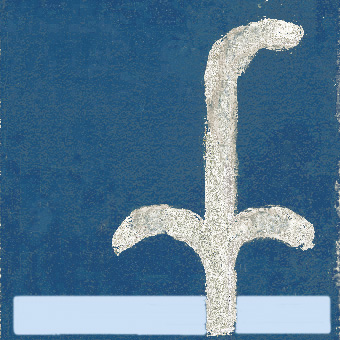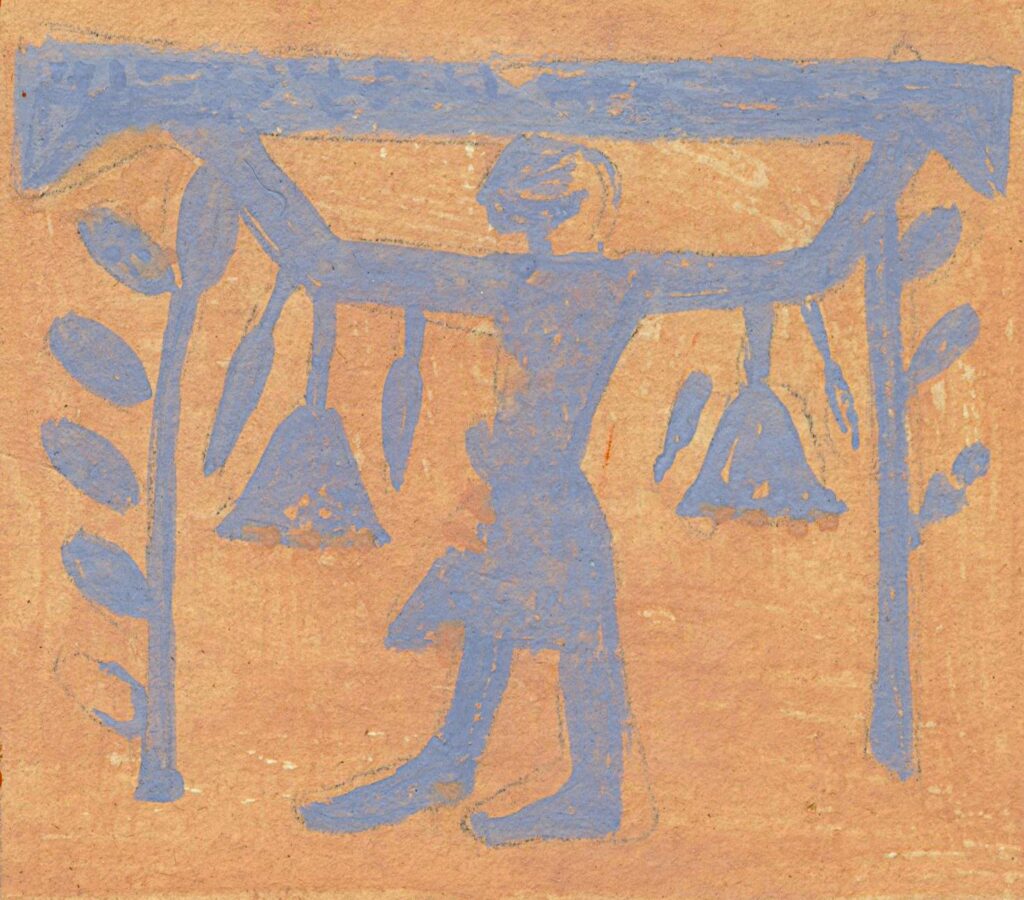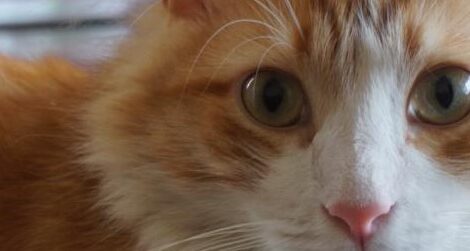
Animals – 3: Cats
Author: Susan Biddle.
This post is one of a series looking at the animals that Myrtle Broome encountered during her eight seasons working in Egypt (1929–1937). Although dogs seem to have been her first love, Myrtle was also fond of the camp cats, particularly one who arrived as a kitten. This instalment looks at the cats (of all sizes) whom Myrtle encountered.
The first clue that Myrtle liked cats comes on her voyage out to Egypt for her first season working with Amice Calverley at Abydos. She told her parents that “There is a black cat on board. It permitted me to cuddle it one day”. When the S.S. Ranchi reached Marseilles, Myrtle and one of her fellow passengers visited the zoo where they “saw a darling baby panther … it was playing with a ball just like a kitten”. They “both wanted to hug it”.
Although she enjoyed cuddling cats, Myrtle was not sentimental about feline motivations. At the start of the second season she reported to her mother that the camp dog looked fat and well and was pleased to see them again. She continued, “Bijou-Bast-Anta (the [dig house] cat) is also flourishing, he comes to see us each dinner time & is very friendly while food is about”. At the beginning of the third season she similarly reported that “our dog was delighted to see us & greeted us with much bouncing & loud wuff wuffs. He is in splendid condition. Bijou-Bast-Anta the cat is also well, but takes no interest in us except at meal times”. The same was true the following season; when they arrived, they “had a terrific welcome, everything was in good order, our dog waved his tail & pranced with delight, & at supper time our cat came & demanded food just as if we had never been away at all”.
This dig house cat had a powerful voice. In April 1931 Myrtle told her mother: “we have taught our cat not to meow. He is a tiny cat, but he has the most awful voice, & he would yowl at meal times, so we splashed water in his face each time he did it. & now after three days of this treatment he has learnt not to raise his voice above a whisper – don’t you think he is clever?”. On occasion, however, the cat would still raise his voice. In November 1931 Myrtle and Amice had their first lesson in writing Arabic from the local school teacher who came to the dig house for the purpose. Myrtle explained to Alan H. Gardiner, editor of The Temple of King Sethos I at Abydos on which Amice and Myrtle were working: “our first [Arabic] lesson was great fun – we had to repeat our [letters] after the schoolmaster. We kept our dignity as far as [wāw] – then this happened. ‘wow’ said the school master, ‘wow’ said Amice & I in chorus, ‘wow-w-w’ said the cat solo-fortissimo. How we laughed”. This was too much for the gravity even of the school master, who joined in the mirth.
Even without such provocation, the cat was clearly not an entirely reformed character. In December 1933 Myrtle told her mother that the Egyptian servants have “strange terms of abuse. One of them is ‘oh you son of a grave digger’”, and this had been adopted as a nickname for the cat when he persisted in meowing.
The cat played a different role in a later Arabic lesson. By March 1932 Myrtle was reading Aesop’s Fables in Arabic for her lessons. She told her mother that “one of the … stories caused me quite a bit of fun & added to my knowledge of natural history. It was about a cat, & it described its habits & its looks, & it said, on its front legs it has five toes in all, and on its hind legs it has four toes in all. I began to wonder, had I made a mistake in my reading, or was it really so. I asked Amice & Nannie [the Syrian housekeeper] how many toes a cat had on his hind legs. They shouted with laughter at the question, but thought like I did that there were five toes on all four legs – so we sent Abdullah [the youngest servant] to find Bijou-Bast-Anta and when he brought him we carefully counted his toes. There were only four on his back legs. Did you know this?”. In fact a common mutation means that many cats do have more than four toes on their back feet, a condition known as polydactylism; perhaps some of the other cats Myrtle knew did have five toes on all four feet.
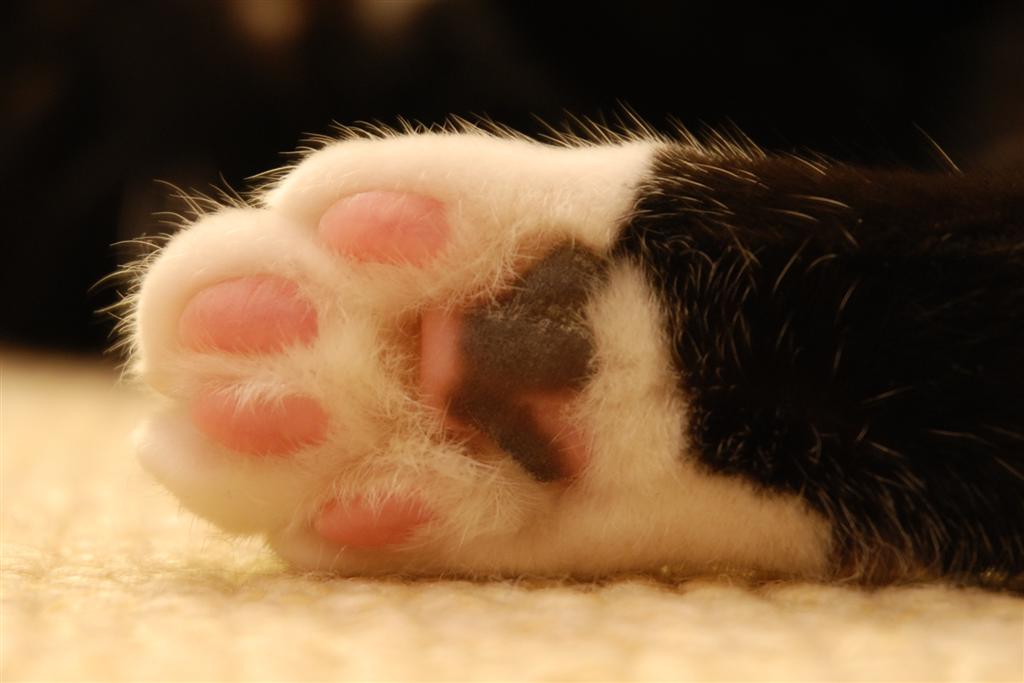
cloudzilla, Creative Commons by 2.0, via Wikimedia Commons
The cat had to share its food with the camp dogs, all feeding out of the same dish. Myrtle thought the cat came off “rather badly in the amount of his share but as he is allowed to come in at our supper time, he makes up for it then”. In November 1934 the cat amused them at supper one evening. Myrtle told her mother that “we had put him down a saucer of very hot soup & he was so eager to drink it he did not know what to do. I think he must have burnt his nose for he stood an arm’s length away, & dabbed at it with his paw, & then licked up the splashings until it was cool enough for him to lap from the saucer”.
The cat sometimes disappeared for a while, intent on its own occupations. In February 1932 Myrtle explained to her father: “our cat has been on the razzle dazzle & appeared at supper tonight with a very scratched nose & a dirty face. We wonder if it was his lady love or a rival who did the damage”. A month later she told her mother that the cat was “very fit but not quite as beautiful as he was before he began thinking about the ladies. I don’t think he is a very successful ladies’ man”. Lack of success did not deter the cat. In January the following year Myrtle indicated that “our cat has been off on the razzle dazzle for some days & has now returned looking thin & hungry. We are very glad to see him again”.
In April 1935 Mrytle sadly reported to her mother that “I am afraid something must have happened to our cat, he has been missing now for over a month. We are quite used to him going off on his various love affairs in the spring time, but he has always returned within the week, very hungry & looking the worse for wear. But never for as long as a month. So it seems as if something has happened to him. Amice & I are very sad about it as we were very fond of the strange beastie”. It was not until February 1936 that Mrytle could tell her mother: “I am sure you will be pleased to hear that our first cat did not come to a sticky end as we feared. He has gone wild & is living in a hole in the wall of the ruined fortress a little way from here. One of the guards saw & recognised him one evening”.
In the meantime the lack of a cat was a problem; a week after reporting Bijou-Bast-Anta had been missing for a month, Myrtle told her mother that she “had a rat in my room last week & had a disturbed night. It is amazing how much noise a rat can make running about … The corn is being cut & the rats are disturbed in the fields & they come into the houses in search of food, & now there is no cat to frighten them away. Cats are very scarce here, & we have not been able to find another”.
Over the summer the head servant Sardic tried to find a replacement cat, but when Myrtle arrived in November 1935 she told her father: “the two cats that Sardic wrote about are no good. One died & the other was such a miserable little thing that they took it back to the village”. However she thought that her Arabic teacher, Sheikh Jed el-Karim, was going to try to get them a cat from the village where he taught. Two days later she delightedly reported: “I had a nice surprise yesterday. Sheikh Jed el-Karim arrived with a basket in front of him on his donkey & he told me there was a present for me inside it. When I opened it there was a dear little tabby kitten. It was trembling with fright after its hour’s donkey ride. He had brought it from the village where his school is”. Myrtle “lifted it out & cuddled it a bit & though it was very frightened & clung with all its claws to the basket it never scratched my hands & after a little it began to purr very softly”. They gave it some milk and scraps of chicken and left it in the kitchen to get used to its new home, before spending the night with the servants in their room. The kitten – being tabby – was named “Mugallem”, meaning “Striped One”.
A couple of days later Myrtle reported that “our kitten has made himself quite at home now. He sits on my lap & purrs & makes puddings. Otto [Otto Daum, an Austrian artist on the team that season] says he is playing the piano”. Like the first cat, he joined them for supper. Myrtle told her mother: “he behaves beautifully at meal times, drinks up his soup & then sits quite quietly under the table”. A little later Myrtle explained: “our kitten had his first taste of butter the other evening. We had had a sort of marrow fried in butter & we put him down the scrapings from the dish. He was in ecstasy, he walked round & round that dish long after he had removed the last vestige of taste or smell of butter, he purred to it & even played the piano on it, & then felt so pleased with everything & everybody he jumped on all our laps in turn & could not make enough fuss”. However it was not all cupboard love with Mugallem, Myrtle telling her mother in December that he “thinks petting is much more important than eating”.
One night the men “had a sort of sing song & one played the drum”, which frightened the kitten into taking refuge in the woodshed for a day and a night. Myrtle explained to her mother that “Egyptian cats are much more timid & wild than the European cats. They are also much leaner, have little pointed faces, big ears & enormous eyes”.
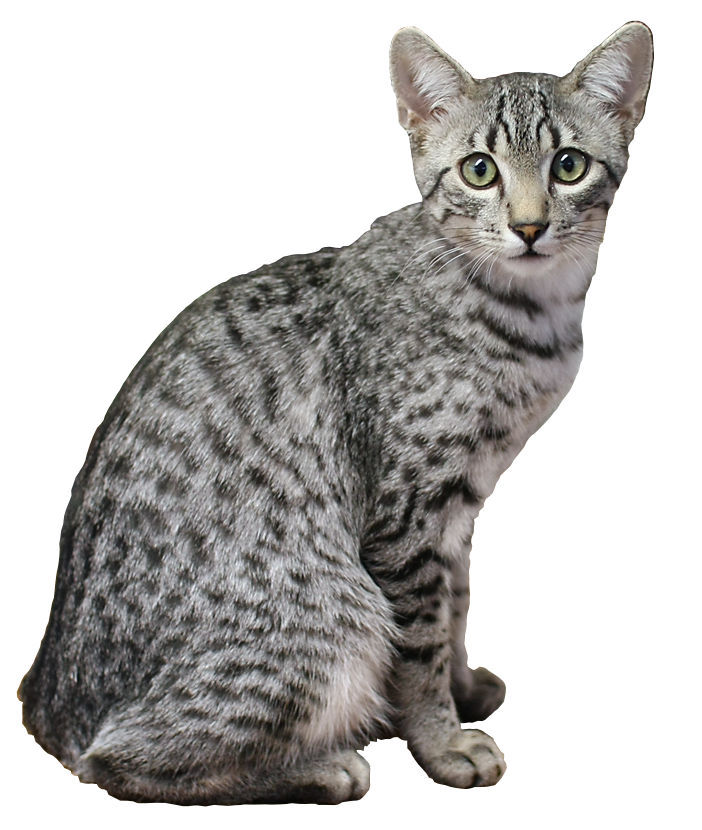
Desaix83, d’après le travail d’Heikki Siltala, CC BY 3.0, via Wikimedia Commons
When the cat ventured back into the house for food after its fright, Abdullah caught it and took it to Myrtle. She told her mother: “it was soon purring on my lap, but started at the least sound, so I took it into my room for the night & gave it its supper there. When I was undressing it followed me every step I took, rubbing against my feet. It sat on my bed a little while & then went & investigated my room. I think it jumped on everything of a jumpable height”. Whilst the kitten may have deterred rats, Myrtle still “had rather a disturbed night as the darling would keep jumping on me & making puddings & loud purrings & then going on further investigations & occasionally protesting about something or other in a loud voice, but directly I made enticing cat noises, he came & jumped up & began purring & rubbing & making puddings all over again”.
Unfortunately, by the next season, they saw little of the new cat. Myrtle thought this was “Nannie’s fault as she is always shoving & driving it away. She says he is a thief. She is careless about leaving food about when he can get it, so of course he seizes the opportunity (& the food). I think she must have hit him with a stick some times for he always runs away & hides as soon as he hears any one coming”. She expected that in the end Mugallem would go back to the wild like Bijou-Bast-Anta.
Sources:
Letters: 24, 27, 96, 133, 146, 151, 170, 177, 181, 195, 209, 251, 281, 301, 332, 334, 346, 347, 348, 350, 351, 355, 369.
Gardiner MSS 43 – Broome Correspondence letter 200.
With thanks to:
- the Griffith Institute, University of Oxford, for the opportunity to work on the Broome collection and the Abydos Enterprise correspondence within the Gardiner collection, and for their ongoing support for this blog
